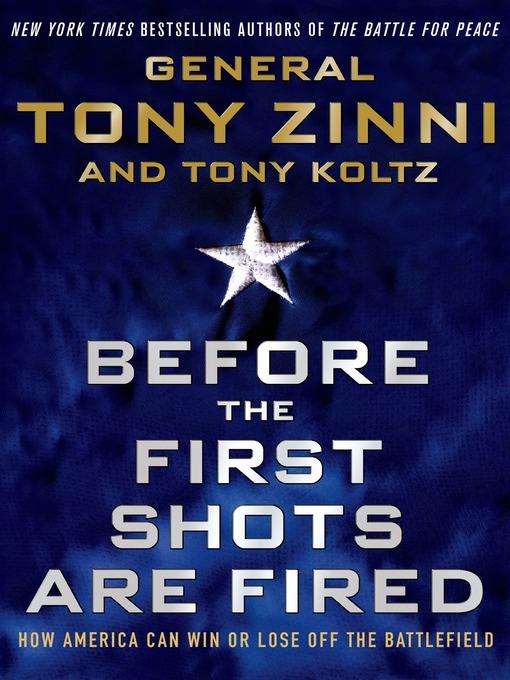
Before the First Shots Are Fired
How America Can Win Or Lose Off The Battlefield
کتاب های مرتبط
- اطلاعات
- نقد و بررسی
- دیدگاه کاربران
نقد و بررسی

July 7, 2014
Distinguished U.S. Marine Corps General (ret.) Zinni argues that the key to the U.S. military’s success in battle lies in a combination of strategic decisions and actions that occur off the battlefield and often before the battle begins. Zinni illustrates his primer on the basics of formulating national strategy with examples taken from more than 50 years of military and national security experience. His full-bore critique of presidential administrations is organized chronologically from Kennedy to Obama. In the course of his analysis, Zinni names names and makes some bold and controversial assertions (for example, the U.S. has been too quick to use military force in the past and most civilian politicians are not knowledgeable enough to make correct decisions regarding war or strategy without professional advice). He offers several solutions to the issues he raises, including the creation of a professional, civilian-led national security corps, and a complete legislative reorganization of the military’s administrative departments to force “whole of government” strategic approaches to solving problems of national security. Zinni insightfully criticizes the decision-making process behind our national strategy and makes recommendations worthy of consideration.

July 15, 2014
A retired four-star Marine Corps general examines how warscan be lost before they've even begun.In his latest collaboration with co-author Koltz (Leading the Charge: Leadership Lessons fromthe Battlefield to the Boardroom, 2009, etc.), Zinni brings his fivedecades of military experience to bear and draws on lessons from past wars toset out vital preconditions for successful military intervention. No matter theprovocation for war, we must respond first with sound analysis. Intelligenceexperts must not only gather the pertinent data and define the problem, butalso provide the context necessary for sound decision-making. Second, responsible executives must look at all the options, the policy implicationsand consequences of any decision. Here, styles may vary-Zinni cites Eisenhowerand Truman as models-and depend on a variety of factors, but the president mustfind a way to fully comprehend the implications of any decision to use force.Third, we must design and implement a dynamic strategy that synchronizes theefforts of our political leadership, policy developers and operationalcommanders. Throughout, Zinni touches on a variety of topics: the critical roleplayed by any secretary of defense (thumbs up for William Cohen, down forDonald Rumsfeld); the need for strong legal, ethical and moral groundsanchoring any narrative arguing for war; the fashioning of a military forceadaptable to the mission; the proper role of contractors, the National Guardand Reserves; the necessity of meritocratic selection of combat leaders; theneed for overhauling national security structures, some of which date back tothe 1940s; the need to update our regional and global partnerships; and theimportance of words and ideas, "the battle of the narrative," to accomplishingour goals. If today's wars too often "end" not in victory but instead with anexasperated, "How the hell did we get here?" it's likely due to the fact that wehave ignored too many of the issues Zinni raises.A useful guide for anticipating the complexities of themodern battlefield.
COPYRIGHT(2014) Kirkus Reviews, ALL RIGHTS RESERVED.

























دیدگاه کاربران